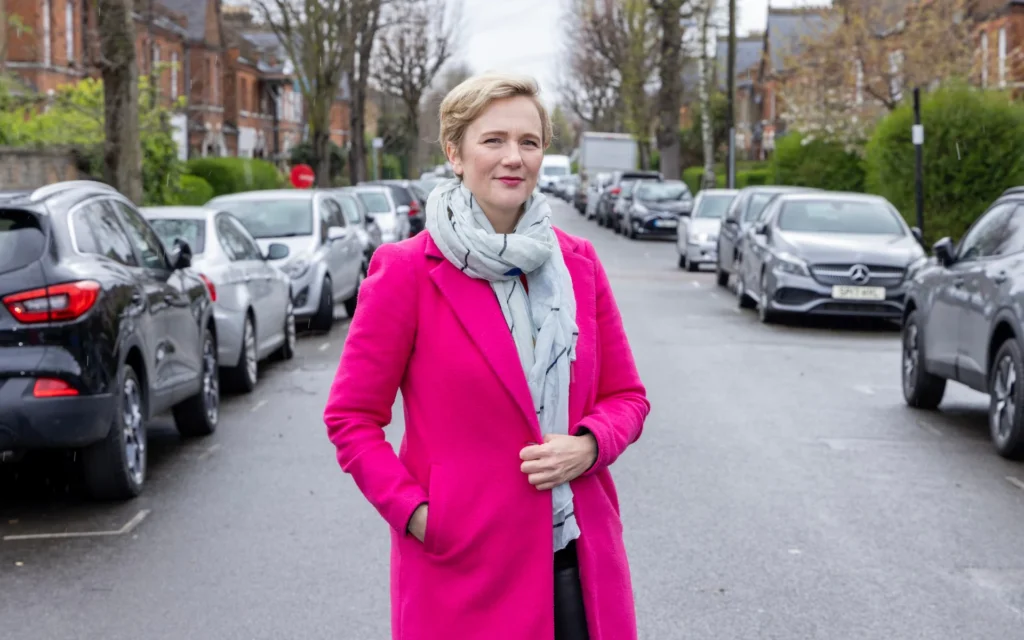It’s difficult to think of a more overused cliché than the term “Orwellian” when critiquing the Government’s modus operandi. Anyone familiar with Orwell’s seminal “1984” will know only too well his nightmare vision of the surveillance state, where people’s movements, speech and even thoughts are monitored and catalogued.
However, there’s no smoke without a fire, and the popular analogy is used for a reason. Britain has more surveillance cameras per person than any country except China and is the worst-ranking EU country in terms of surveillance. It is also the only EU country in the “black category,” which defines countries demonstrating “endemic surveillance.”
Endemic certainly seems appropriate because a new type of speed camera, which uses artificial intelligence to detect and prosecute motorists using their mobile phone at the wheel, is now being rolled out across ten police forces in England to eradicate the problem.
In addition to detecting mobile phone usage, they can detect speed and drivers not wearing seatbelts. The equipment will have multiple cameras to give the most complete view of drivers and passengers, and it will be mounted on either a trailer or a specialist van.
Of course, this is all in our interest, or at least that’s what the Government would have us believe.
“Working with our police partners we want to reduce such dangerous driving and reduce the risks posed to both the drivers and other people. We believe that using technology like this will make people seriously consider their driving behaviour,” Head of National Road User Safety Delivery at National Highways. Matt Staton said.
It seems so considerate and benevolent of the Government. After all, who doesn’t want safer roads and more responsible drivers? As the saying goes, however, the road to hell is paved with good intentions, and we use the word “good” ironically.
The debate surrounding speed cameras’ efficacy in accident reduction is ongoing. For example, an LSE study showed that from 1992 to 2016, speed cameras reduced accidents by 17% to 39%.
In contrast, a study by the RAC Foundation found that accidents increased at 21 sites after their installation. Another study found that speed cameras may have a “kangaroo” effect, where drivers slow down before the camera and speed up beyond it, potentially leading to increased accidents away from the camera.
What doesn’t need debate, however, is that speed cameras constitute an immense gravy train for the UK treasury. 2012-2020 saw £ 1.9 billion netted by cameras according to Freedom of Information requests to 45 police forces by insurers Tempcover.
However, fleecing the British public is only half of the agenda. The recent ULEZ fiasco proves that the UK government is hellbent on extending its mass surveillance of all residents rather than targeted surveillance of individuals suspected of wrongdoing. This widespread intrusion into our privacy has led to justified concerns about its erosion and the potential for abuse of power.
It’s a slippery slope. If the Government is going to worm its way into our cars, it will only be a matter of time before they infest our homes. It will all come under the banner of safety and crime reduction, with the adage “You Have Nothing to Fear if You Have Nothing to Hide,” in the meantime, anyone deemed to be indulging in “wrong think” can expect a swift drop in by the thought police. They want absolute control over us, and we must stand up for our right to privacy.
If there’s a silver lining to this dystopian prospect, it’s the jarring disparity between the Government’s and Homeland Party’s attitude towards the British people. As nationalists, we love our people and don’t perceive them merely as sources of revenue and dormant criminals deserving of a constant watchful eye over them.
A Homeland government ensures that public spending will always be in the interest of the British people. We will never pursue costly surveillance programmes because we trust our people, and they deserve better.


